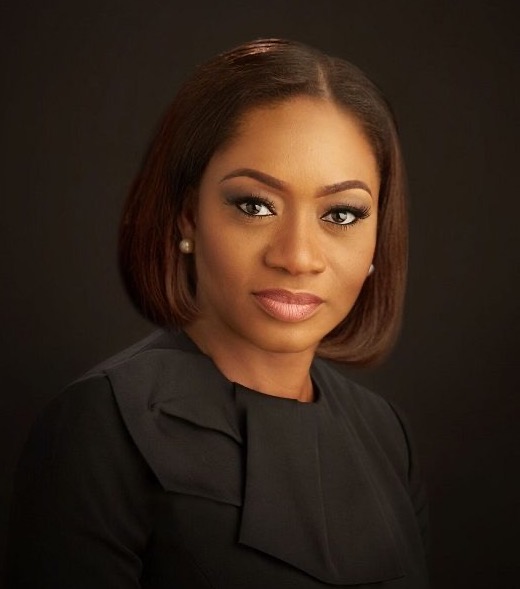With six out of 23 commercial banks in Nigeria run by women CEOs, a new era of women leadership in the financial sector has set in. Still, the 26 per cent representation of women at the top echelon of banks falls short of the 40 per cent board position set for the lenders by the Central Bank of Nigeria (CBN).
The significant strides made in actualizing a gender-diverse workforce at the senior-management and board levels in banks.
Gender diversity in workplace is a global hot topic any day. Women have for years remained at the background in the running of top businesses at key sectors of the economy.
This persists despite opposition from local and international institutions demanding gender equity in the workplace.
The Nigerian banking sector, as with almost every other business sector, is dominated by men, especially at the top management and board levels. 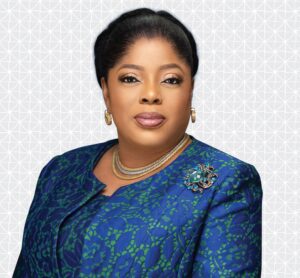
Findings showed that many people see women as generally lacking the ruthless nature required to operate at senior levels. Still women’s soft skills like ability to build bridges and mediate in conflicts usually give them an edge over their male counterparts.
Interestingly, the gender gap in the Nigerian banking sector is gradually bridged with significant improvement in the number of women holding key positions and successfully driving growth in their institutions.
Today, six out of 23 commercial banks, representing 26 per cent, are run by women Managing Directors/Chief Executive Officers.
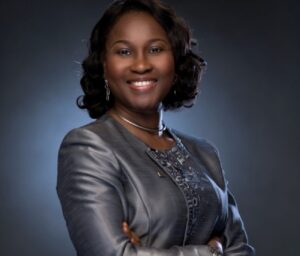 Guaranty Trust Bank has Mrs. Miriam Olusanya as Managing Director; Mrs Nneka Onyeali-Ikpe is the Managing Director of Fidelity Bank; Mrs. Yemisi Edun as the Managing Director of First City Monument Bank (FCMB) Limited and Mrs. Ireti Samuel-Ogbu, is the Country Officer for Nigeria/ Managing Director/CEO Citibank Nigeria.
Guaranty Trust Bank has Mrs. Miriam Olusanya as Managing Director; Mrs Nneka Onyeali-Ikpe is the Managing Director of Fidelity Bank; Mrs. Yemisi Edun as the Managing Director of First City Monument Bank (FCMB) Limited and Mrs. Ireti Samuel-Ogbu, is the Country Officer for Nigeria/ Managing Director/CEO Citibank Nigeria.
Others are Mrs. Halima Buba, who is the Managing Director/CEO SunTrust Bank Limited while Mrs. Tomi Somefun is the Managing Director/CEO Unity Bank Plc.
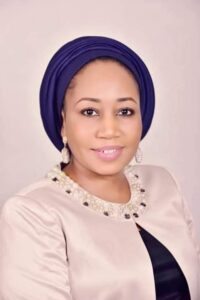 Olusanya of GTBank has over 23 years’ banking experience that cuts across Transaction Services, Asset and Liability Management, Financial Markets, Investment Banking and Investor Relations.
Olusanya of GTBank has over 23 years’ banking experience that cuts across Transaction Services, Asset and Liability Management, Financial Markets, Investment Banking and Investor Relations.
She holds a Bachelor of Pharmacy (B. Pharm) degree from the University of Ibadan, Nigeria and a Master of Business Administration (Finance and Accounting) from the University of Liverpool, United Kingdom.
Olusanya is expected to help strengthen the bank’s long-term competitiveness and growth prospects.
The appointment of Mrs. Onyeali-Ikpe is expected to help Fidelity Bank Plc consolidate on its growth and achieve greater strides.
Mrs. Onyeali-Ikpe is the fourth Chief Executive and first female to occupy the position since the inception of the bank in 1988.
She succeeded erstwhile managing director. Nnamdi Okonkwo who retired on December 31, 2020, after completing his tenure, Onyeali-Ikpe’s leadership is expected to build on already laid foundation and track record of performance to execute the next growth phase.
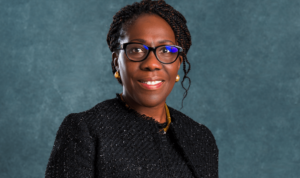
Onyeali-Ikpe was Executive Director, Lagos and South West Directorate. She was an integral part of management having joined the bank in 2015. She spearheaded the transformation of the Directorate, leading it to profitability and impressive year-on-year growth across key performance metrics, including contributing over 28 per cent of the bank’s profit before tax, deposits and loans.
Equally, the Board of Directors of FCMB Group Plc appointed Mrs. Edun following the end of service of the bank’s former Managing Director, Adam Nuru.
Edun was previously the Executive Director/Chief Financial Officer of the bank and served as the acting Managing Director.
With a work experience spanning nearly 35 years, Edun holds a Bachelor’s degree in Chemistry from the University of Ife, Ile-Ife and a Master’s degree in International Accounting and Finance from the University of Liverpool, United Kingdom.
Another top banker, Mrs. Samuel-Ogbu of Citibank Nigeria, previously served as managing director of payments and receivables, treasury and trade solutions for Europe, Middle East and Africa at the group’s office in London.
She had been on the Board of Citibank Nigeria Limited since 2015 as a non-Executive Director.
In the last 32 years, Samuel-Ogbu has held various roles across Citi’s businesses in the UK, Nigeria and South Africa, having worked in each of these countries twice.

Mrs. Somefun of Unity Bank Plc, had prior to her appointment as Managing Director/CEO in August 2015, served as the Executive Director overseeing the Lagos and South-West Business Directorates, the Financial Institution Division and Treasury Department of the Bank. She is a Member of the Board Finance & General Purpose Committee, Board Risk Management Committee, Board Credit Committee, amongst others.
Likewise, Mrs. Buba of SunTrust Bank Limited, has over 20 years cognate experience obtained from working in Allstates Trust Bank, Zenith Bank, Inland Bank Plc, Oceanic Bank Plc and Ecobank Nigeria Limited. She holds a Bachelor of Science (B.Sc.) degree in Business Management from the University of Maiduguri and an MBA from the same University.
Aside the CEO positions, the number of women in other top management positions in banks is also on the rise.
How it all began
Banks are increasingly under pressure to ensure diversity within their boardrooms with some scholars seeing board diversity as a demographic phenomenon entailing age, gender, and ethnicity.
The International Finance Corporation (IFC) report on gender equality says there are evidence of improved performances in banks led by women CEOs.
The report disclosed that Bola Kuforiji-Olubi was the first woman to be appointed to chair the board of a bank, United Bank for Africa (UBA), in 1984.
In 2012, under the leadership of the then-Governor of the Central Bank of Nigeria (CBN) Sanusi Lamido Sanusi, the CBN approved the Sustainable Banking Principles, mandating banks to ensure that at least 40 per cent of the management team are women. The banks are also required to disclose in their annual reports, statistics on female representation.
This is the administration’s bid to institutionalize corporate governance principles and best practices in the banking industry.
On September 7, 2015, First Bank of Nigeria Limited announced the appointment of Mrs. Ibukun Awosika as chairman of the bank. This appointment made her the first woman to assume that position since the establishment of First Bank of Nigeria in 1894.
In 2015, Mosunmola Belo-Olusoga replaced Gbenga Oyebode as chairman of Access Bank Plc. Also in 2015, Osaretin Demuren was appointed chairman of Guaranty Trust Bank. She is the first woman to hold that position.
Under Osaretin as GTBank Chairman, the bank was widely regarded as the best managed financial institution in Nigeria and has, over the past decade, embarked on a period of unparalleled growth, growing its customer base from less than three million customers in 2011 to over 24 million customers in 2020.
The bank’s profit before tax rose from N45.5 billion at the end of the 2010 financial year to N238.1 billion at the end of the 2020 financial year.
Osaretin and Awosika have left GTBank and FirstBank respectively.
CBN, Bankers’ Committee step in
The CBN and Bankers’ Committee have also stepped in to guide banks into achieving gender equity in their institutions, affirming that 40 per cent of top management positions in banks be reserved for women.
CBN Governor Godwin Emefiele reaffirmed the gender equity position at a commemorative webinar hosted by the bank’s Deputy Governor in charge of Financial System Stability, Mrs. Aishah Ahmad, as part of activities to mark the 2021 International Women’s Day.
Speaking on the theme: “Women in leadership: Achieving an equal future in a COVID-19 world”, Emefiele said gender equity for women in boards of banks is being pursued.
He urged stakeholders in private and public organisations to ensure all round gender development and equal opportunities, to increase the number of women in leadership positions in Nigeria and across the world.
The CBN boss restated the bank’s commitment to continually promote gender diversity in the workplace, empower women and increase their active participation in the economy.
He said the CBN recognised the potential of female leaders in different organisations and the Nigerian economy at large, hence it ensured equal opportunities for both male and female staff across every cadre in the bank.
Emefiele stressed the need to have appropriate policies in place in addition to making the right investments in programmes and services to promote women’s leadership and gender parity so as to enable them to contribute to the economy.
He said there was overwhelming evidence that organisations with a high level of female participation fared better than others.
Executive Resident at the University of Oxford and former Treasurer and Vice President at the World Bank Ms. Arunma Otteh highlighted the critical roles of leadership occupied by women, noting that women were key to societal advancement.
Making a business case for gender equity, Ms. Otteh noted that women economics was “SMART” economics, citing statistics that indicate women re-invest up to 90 per cent of their resources into their respective families and societies.
She stressed the need to critically address the challenge of security in order to earn economic prosperity, saying that women remain Nigeria’s last hope to tackling insecurity and life endangering situations.
Boards and gender equity in banks
In a seven-person board membership, GTBank has two women aside the Managing Director. They are Ms. Imoni Akpofure, Independent Non-Executive Director and Mrs. Victoria Osondu Adefala, Independent Non-Executive Director.
Aside the Managing Director, Fidelity Bank has only one woman on its 13-person board membership. Mrs. Amaka Onwughalu was appointed to the Board of Fidelity Bank as a Non-Executive Director, effective December 15, 2020.
FCMB’s nine-person board membership has only two women aside the Managing Director. They are Mrs. Mfon Usoro – Non-Executive Director, Independent and Ms. Olayemi Keri – Non-Executive Director, Independent.
Unity Bank’s nine-person board membership has two women aside the Managing director. They are Yabawa Lawan Wabi, Non-Executive Director and Oluwafunsho Obasanjo, Non-Executive Director.
SunTrust Bank Nigeria’s six-person board membership has only one woman, aside the Managing Director. She is Noris Okafor, Regional Business Executive –South –South.
Other women banker giants
A top banker, Mrs. Sola David-Borha retired as Standard Bank Chief Executive for Africa Regions in June, after 31 years of distinguished service to the group.
Sola was appointed as the Chief Executive of Africa Regions in January 2017 and has been a passionate advocate of culture change and executive leadership development.
Another top banker is Mrs. Bola Adesola, who is the Senior Vice-Chairman, Standard Chartered Bank Group.
She is responsible for supporting the execution of the bank’s strategic intent within the Africa region.
Her role includes representing Standard Chartered Bank on various Boards in Africa. She leads as the Group’s Senior Banker on key relationships and transactions.
Bola joined the bank on March 2011 as the CEO of Standard Chartered Bank Nigeria Limited and subsequently became the CEO for Nigeria and West Africa in 2015.
The IFC report added that the board is the most influential decision-making unit of an organization, with responsibilities ranging from making key financial and strategic decisions to choosing the company’s top executive leadership.
It explained that given the level of expertise and the amount of information needed to understand and govern today’s complex businesses, it is unrealistic to expect an individual director to be knowledgeable and informed about all phases of business . This is where the concept of board diversity comes into play.
Other analysts said that bridging the gender divide in the workforce is not only a matter of fairness, but also of effective governance and inclusive economic growth.

